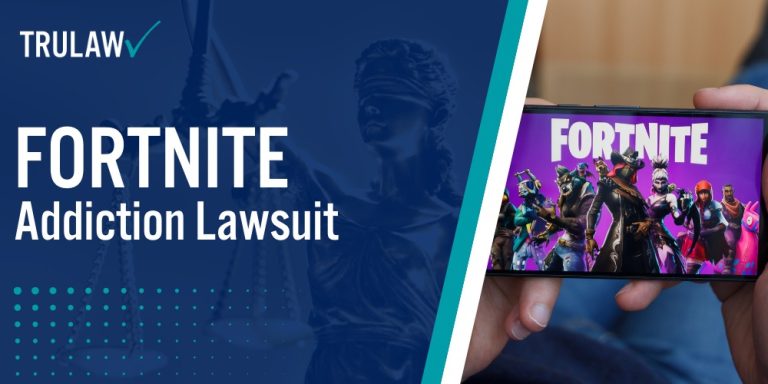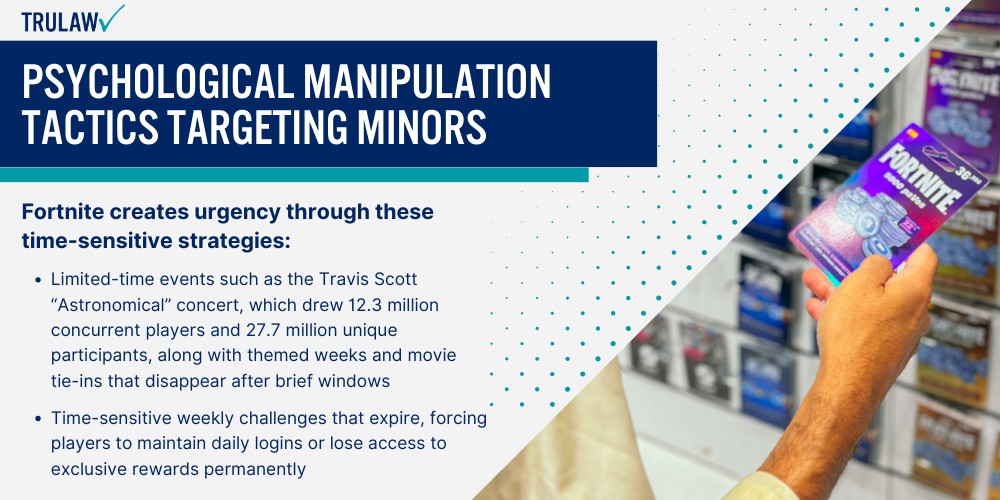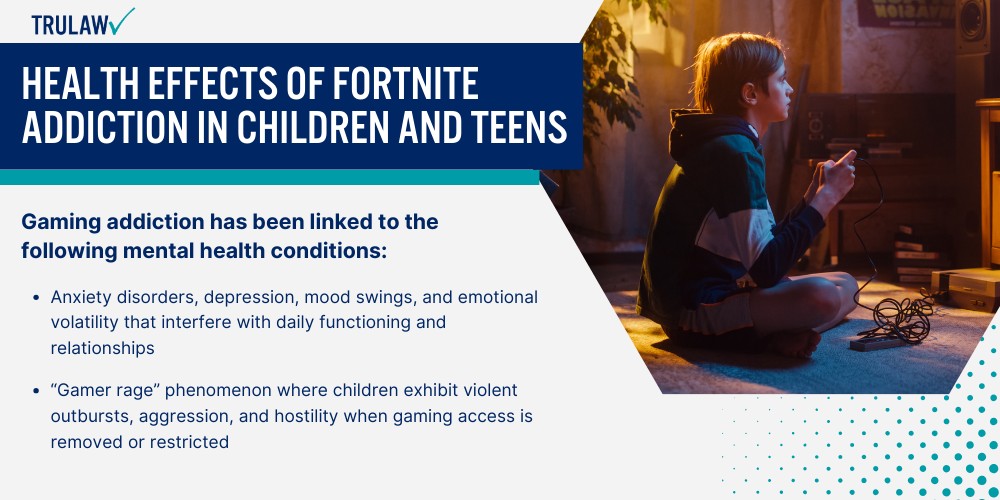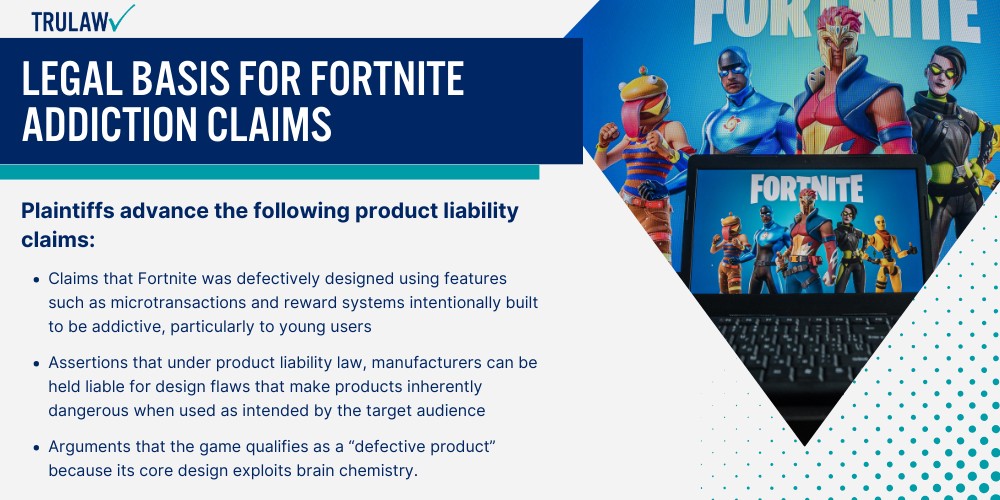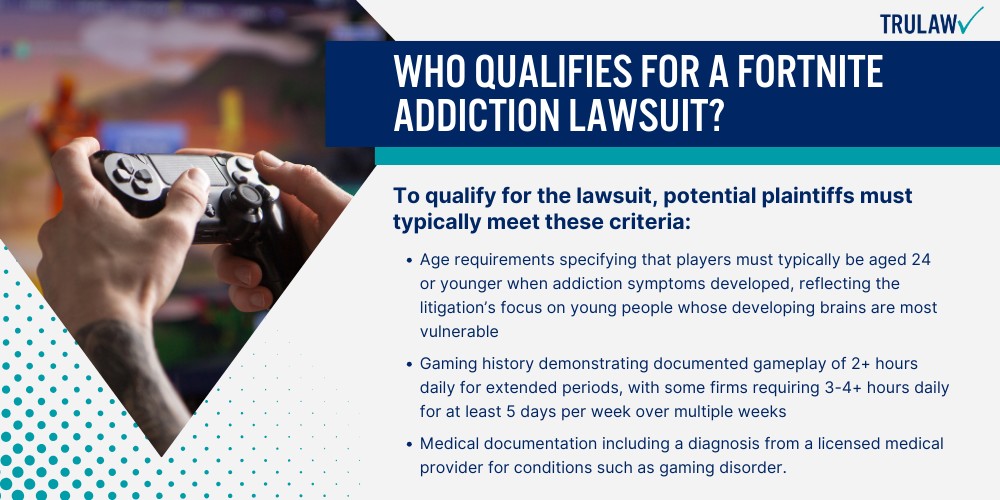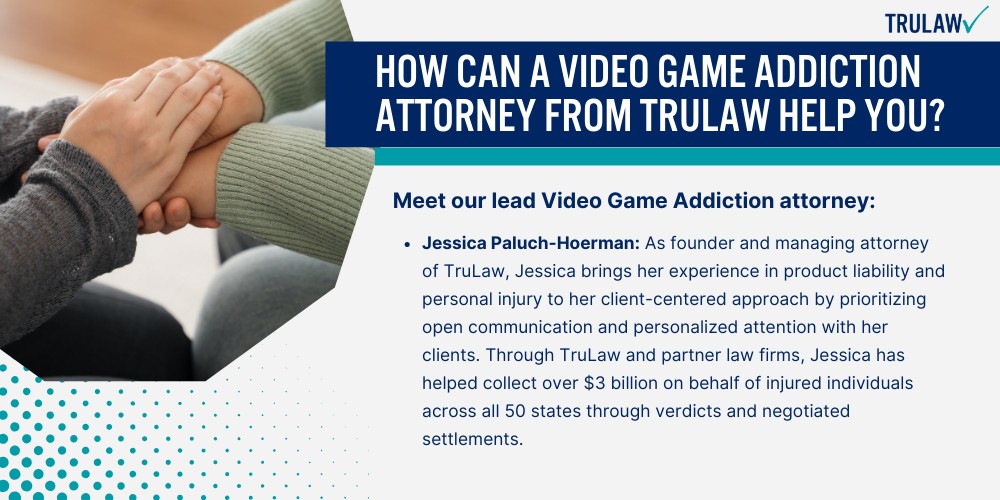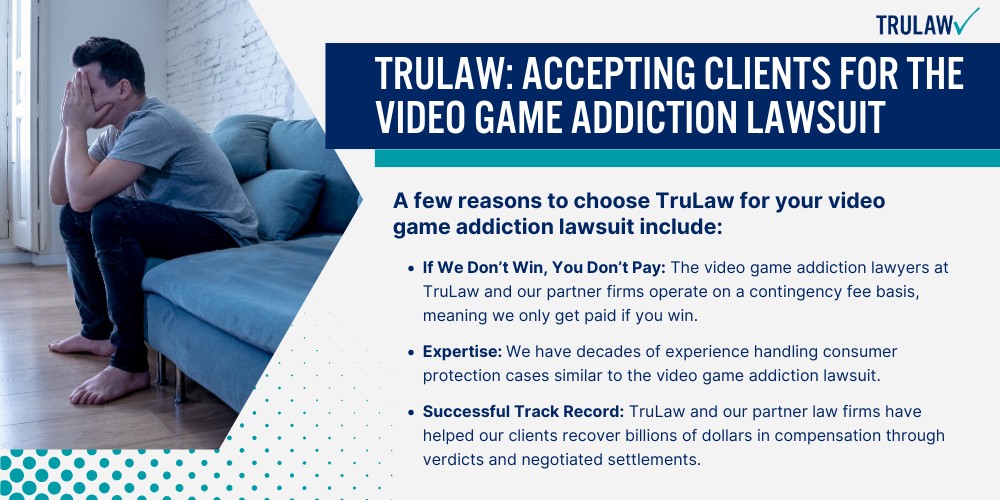Fortnite’s core game mechanics are structured around engagement optimization typical in the gaming industry, with the battle royale format placing 100 players in competition to be the last one standing.
This fast-paced competitive pressure creates intense emotional stakes that keep players engaged and returning match after match.
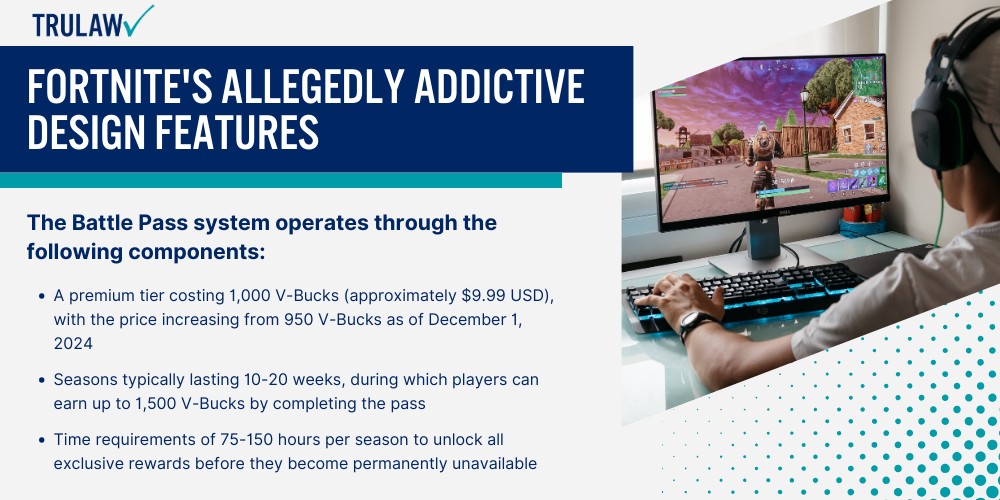
Lawsuits allege that Epic Games deliberately incorporated variable reward schedules similar to gambling mechanisms – neuroimaging studies suggest these reward systems have measurable influence on the brain’s reward processing centers, particularly in developing adolescent minds.
Battle Pass System and Season Events
The Battle Pass represents one of Fortnite’s primary monetization and engagement mechanisms, creating a tiered progression system that rewards consistent play while penalizing absence.
Players who spend real money to purchase the Battle Pass gain access to exclusive cosmetic rewards that can only be unlocked through active gameplay during each season, with content becoming permanently unavailable once the season concludes.
The Battle Pass system operates through the following components:
- A premium tier costing 1,000 V-Bucks (approximately $9.99 USD), with the price increasing from 950 V-Bucks as of December 1, 2024
- Seasons typically lasting 10-20 weeks, during which players can earn up to 1,500 V-Bucks by completing the pass
- Time requirements of 75-150 hours per season to unlock all exclusive rewards before they become permanently unavailable
This urgency-driven model pressures players (particularly minors) to maintain long gaming sessions and daily engagement or risk losing access to content they have already paid to unlock.
The seasonal cycle ensures players remain continuously invested in the game.
Virtual Currency and In-Game Purchases
Fortnite’s V-Bucks system creates psychological detachment between real money and in-game purchases, a design choice plaintiffs allege encourages impulsive spending among younger users who may not fully grasp the monetary value of their transactions.
This virtual currency model obscures actual costs and makes the decision to spend money feel less consequential.
The V-Bucks economy functions as follows:
- In game currency V-Bucks packages ranging from 1,000 ($9.99) to 13,500 ($99.99), with intermediate bundles of 2,800 ($24.99) and 5,000 ($39.99)
- Purchasable items including character skins, emotes, pickaxes, gliders, back bling, and wraps that serve as status symbols among players
- One-click purchase mechanics and allegedly confusing UI designs that lawsuits claim lead to accidental in game transactions, particularly among younger users
The Travis Scott “Astronomical” concert drew over 12.3 million concurrent players, demonstrating the game’s capacity to generate massive engagement through limited-time events that drive both participation and in-game purchases.
Such events create spending urgency that plaintiffs argue exploits young players.
Reward Loops and Progression Systems
Variable reward schedules form the psychological backbone of Fortnite’s engagement strategy, mirroring slot machine mechanics where unpredictable in-game rewards reinforce compulsive play patterns.
Research indicates that video gaming triggers dopamine release in the ventral striatum at levels comparable to substance use or gambling addiction.
The game embeds several psychological techniques designed to reinforce play:
- Progress feedback systems providing constant measurable advancement toward goals, leveraging the psychological “progress principle”
- The “endowed progress effect” that gives players free starting progress, motivating continued engagement to complete what feels like an already-begun journey
- “Near miss” dynamics ensuring players frequently lose by narrow margins, compelling continued play to chase the dopamine rush associated with winning
These design elements allegedly work together to create a cycle of compulsive video game engagement, and TruLaw is currently accepting clients whose children have experienced harm from these game mechanics.
If your child has experienced compulsive gaming behaviors due to Fortnite’s reward systems, you may be eligible to seek compensation.
Contact TruLaw using the chat on this page to receive an instant case evaluation and determine whether you qualify to join others in filing a Fortnite addiction claim today.
